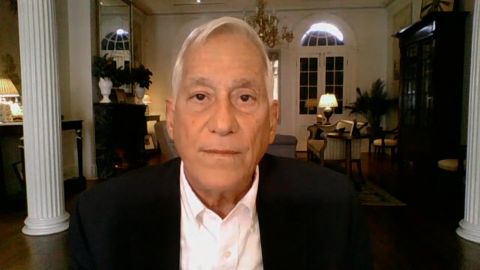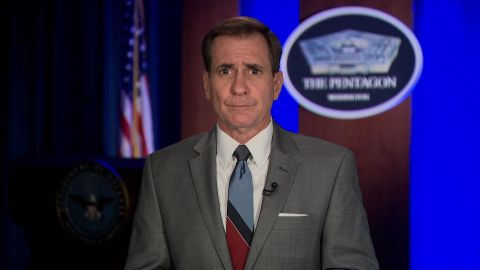Read Transcript EXPAND
JOHN KIRBY, PENTAGON SPOKESPERSON: From our perspective, Christiane, this is about deepening and strengthening alliances and partnerships in the Indo-Pacific region. And these — and these other — these three, four countries, including us, represent a significant amount of security requirements there in that region, economic requirements in that region, and, of course, diplomatic power. And so it makes sense that we would want to continue these kinds of deeper conversations with them. And it is not always all about China. But, clearly, China has been posturing itself in a much more aggressive way in the region, coercing allies and partners of ours, as well as other neighbors of their own. And I do think that it is important for the international community to come together and to talk about how we can better forge an Indo-Pacific region that’s more secure, more stable, and is not susceptible to that kind of coercion.
CHRISTIANE AMANPOUR: OK, so, you say China is posturing itself, as you have described. And we notice that the United States is posturing itself, very clearly, to take China as its principal foreign policy challenge. And we see all these first big meetings, gatherings, trips happening in the Asia region. So, what is the reason for two of the most senior Cabinet ministers, Defense and State, traveling now to Japan, to South Korea? They will be, some of them, going to India, and then, on the return, Secretary Blinken and the national security adviser meeting with the Chinese foreign minister. What is that about?
KIRBY: Well, the Indo-Pacific is probably the most consequential region in the world right now. Some of that is driven by China’s activities. We also have, as you well know, Christiane, five of our seven treaty alliances are in the Pacific region. And we’re going to be meeting with leaders from two of those countries, as you pointed out, Japan and South Korea. And we look forward to those discussions. So, it’s very much about revitalizing our alliances and partnerships overseas, alliances and partnerships that haven’t always been treated with the kind of respect that they earned, that they deserve to be. So we’re going to sit down and talk about a range of alliance issues. And, clearly, we expect that China will come up in these discussions, as it always does. But this is really about revitalizing alliances and partnerships. And for the Defense Department, Christiane, Secretary Austin has made clear that we consider China the biggest pacing challenge that we’re dealing with here. And so part of the trip for Secretary Austin is getting to talk to commanders on the ground, as well as leaders of foreign militaries out there in the region, to help us develop better operating concepts and plans and strategies and develop the kinds of capabilities we need to be able to counter and beat back that pacing challenge that China poses.
About This Episode EXPAND
Walter Isaacson discusses CRISPR and “The Code Breaker.” Plus, Pentagon spokesperson John Kirby explains how the Biden administration will approach tensions with China and Taiwan. And Nse Ufot, CEO of The New Georgia Project, explains how she’s working to make voting easier and more accessible.
LEARN MORE


